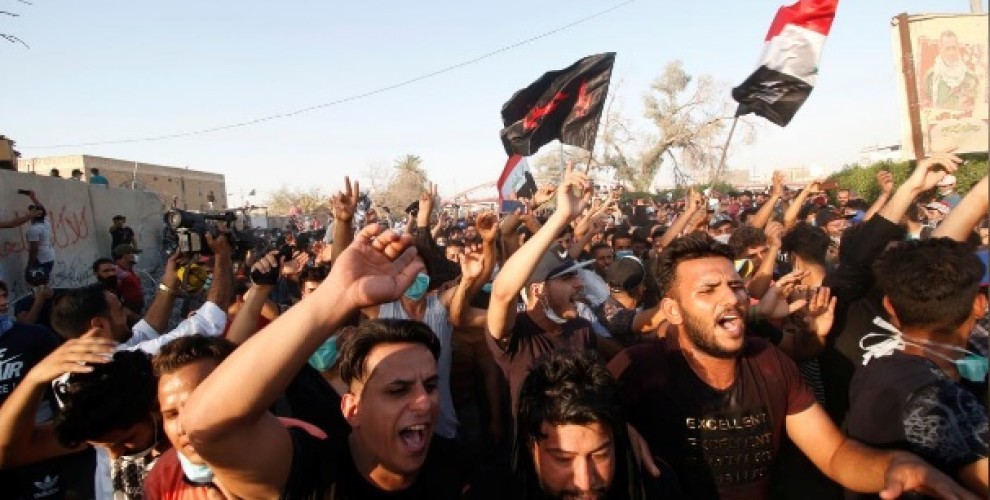Protests in Basra growing as resignation of al-Abadi demanded
Protests in Basra have first broke out on 3 July and quickly spread to other parts of the country.
Protests in Basra have first broke out on 3 July and quickly spread to other parts of the country.

People have been condemning corruption and protesting against the shortages and cuts in energy and water, as well as reiterating their problems with jobs.
Demonstrations have turned violent and since early July at least 27 people have lost their life.
The reaction of the Iraqi government has been imposing a curfew but despite that people have been remaining on the streets. Iraq has yet to form the new government after holding a much contested general election on 12 May.
On Saturday security forces have killed two more demonstrators, wounding 35. Pressures are growing in Parliament among parties. In particular winner of the elections, the Shia clergy Muqtada al-Sadr (who won in coalition with the Communist Party of Iraq) has demanded the resignation of Prime Minister Haider al-Abadi, over the unrest in Basra.
At the emergency session of parliament on Saturday, the Sairoon coalition headed by al-Sadr asked al-Abadi to resign.
Ahmed al-Assadi, spokesperson for the second-largest Fateh Alliance list, also exposed "the government's failure to resolve the crisis in Basra".
Responding to criticism, al-Abadi said unrest in Basra is in fact a "political sabotage”.
Things had escalated in Basra on Tuesday, when demonstrators set ablaze government buildings, but also the Iranian consulate and the offices of pro-Tehran militias and parties.
The hospitalisation of 30,000 people who had drunk polluted water had added fuel to the fire.
The Iranian Foreign Ministry Spokesman, Bahram Qasemi, regretted the attack on consulate and said that it was a “violation of protocols” and that the Iraqi government had a crucial responsibility in protecting diplomatic sites.